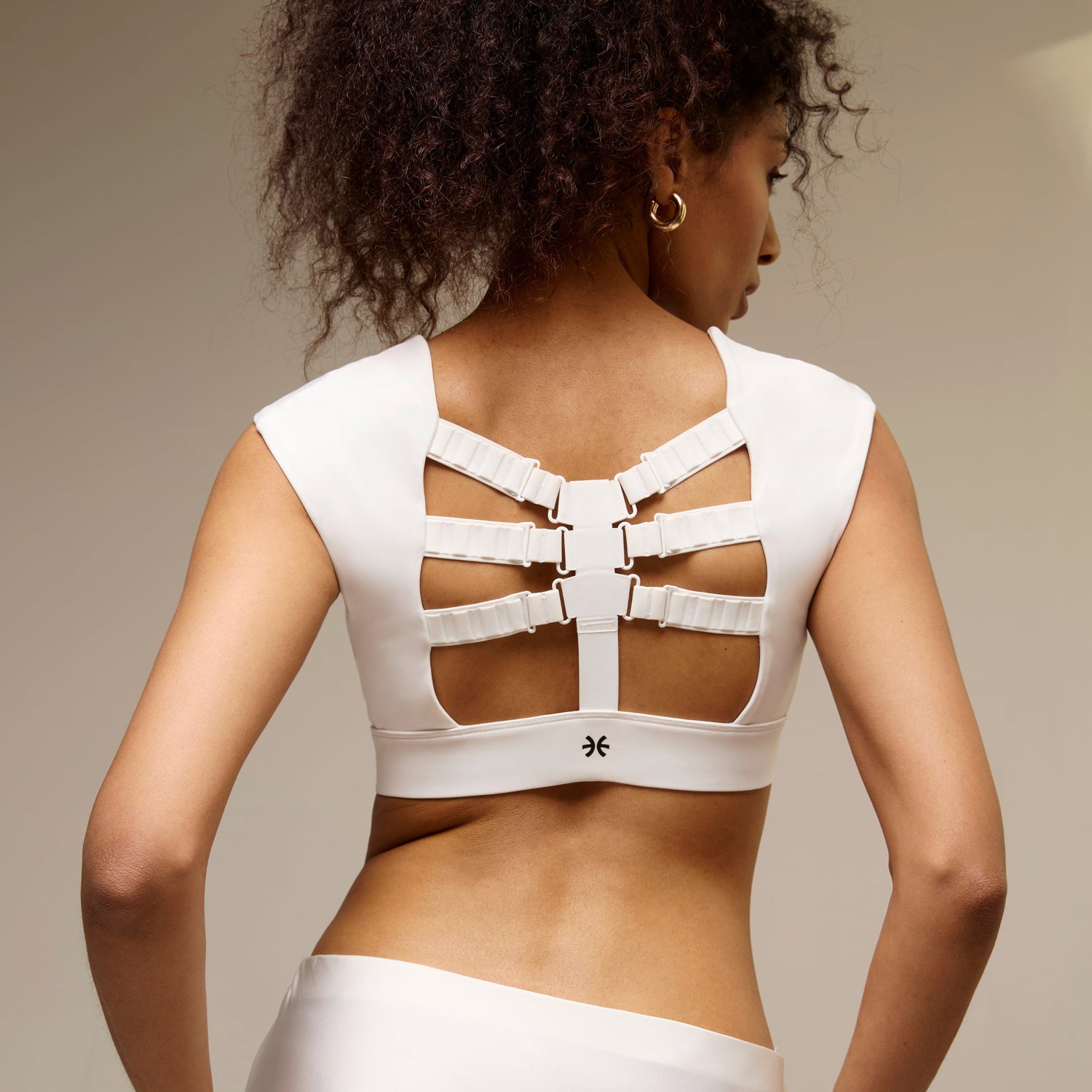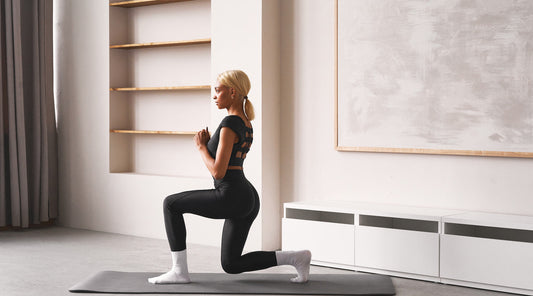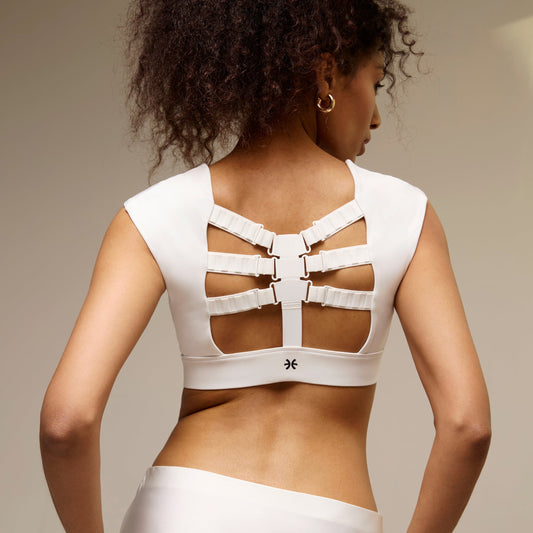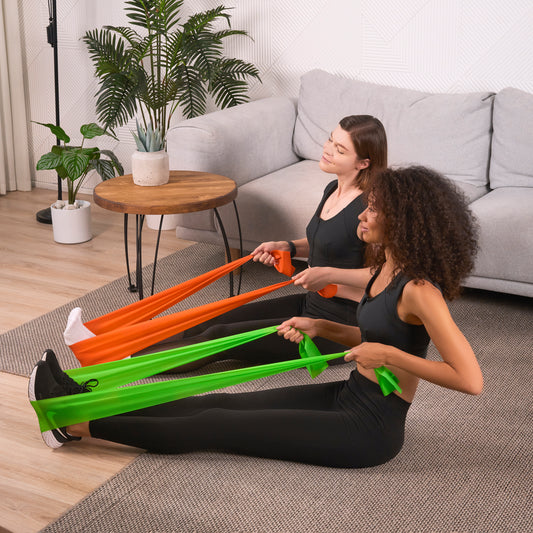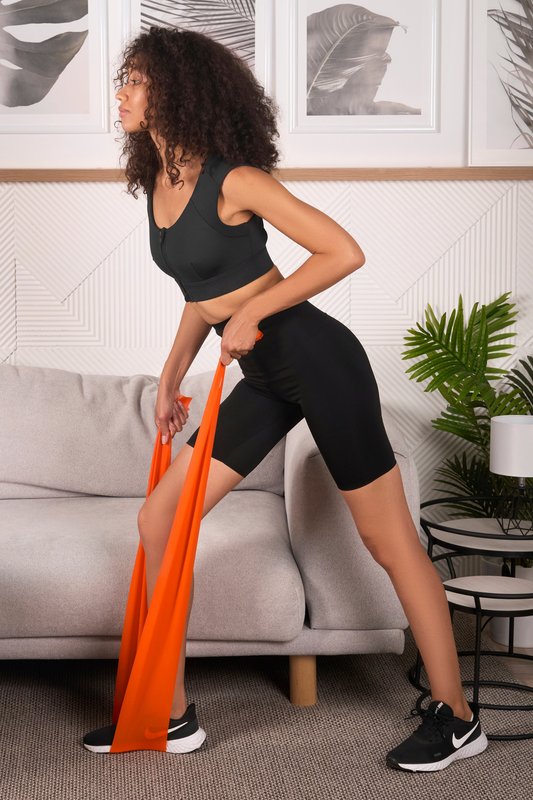To improve your posture, identify the root reasons that cause slouching. Knowing them will help you be more mindful of your everyday routine and reduce external factors impacting your ability to sit straight.
Non-ergonomic workspace
Many people have started working from home during the pandemic and after. And to be more precise, from their couches, beds, kitchen tables, coffee places, etc. Not having it tailored to your height workstation causes all sorts of weird postures. Pay attention to choosing the suitable desk, chair, and monitor setup. Ideally, you should maintain a neutral spine with back or footrests and seat cushions. Put your computer screen at a comfortable height and place your keyboard and mouse at elbow height. Many people prefer standing desks or kneeling chairs for helping to support good posture.

Looking at your phone
We look at our phones and tablets while walking, waiting in line, reading the news, and watching TikTok. Because of screen size, people generally hunch over their devices to get a better view or slump back for "comfortable" lounging. And with the constant entertainment, it can be easy to lose track of how long you've been locked in a harmful position. Minimizing phone usage is challenging because our phones are connected to nearly everything. Several tricks can help to avoid bad posture. First, keep the phone at eye level while using a mobile phone, and minimize the arm floating in front of the body. Find a place to rest your elbows: use the opposite hand, ribs, a desk, and knees as options. Finally, use the phone's voice dictation instead of texting.
Long-distance commute
As traveling resumes and many people need to commute to work, looking at mobile devices long driving challenges good posture. Long commutes can cause stiff neck, sore shoulders, and back pain. From hyper-focus on the road to a seat that needs to be correctly positioned, it can be easy to pitch the shoulders up into the neck and hunch over the steering wheel. This is especially common in shorter drivers, who typically sit closer to the steering wheel. Prioritize maintaining a good posture to feel productive and energetic at work or after travel. Use cushions if you need to adjust a seat.

Weak back muscles
Bad posture weakens muscles, making it harder for them to maintain the body's position and reduce blood supply; not paying attention to your back muscles can affect your ability to hold straight. Rounded shoulders are typically caused by poor posture habits, muscle imbalances, and focusing too much on certain exercises, such as too much focus on chest strength while neglecting the upper back. People with bigger breasts can experience more challenges staying upright and carrying extra weight. The good news is that by doing a simple set of exercises every day, you can improve muscle strength and avoid back pain.
Slouching habits
Even if everything around you is designed ergonomically, there is always a temptation to relax and slouch. To get rid of this annoying habit, try to be more aware of your body and practice embodiment. While buzzing devices that remind you about straight back can be helpful, they might create anxiety and stress. Posture correctors like Etalon posture correcting bra that are comfortable and don't limit your movements can be a better way to help your body train right position and, eventually, muscle memory to support your good posture habits.
Uncomfortable shoes
There is a strong correlation between the comfort of wearing shoes and posture. A great pair of shoes is often so uncomfortable that it will cause pain all along your skeleton and make you look like a hunchback. Our feet have a natural curvature that supports our skeleton and entire body. This support happens silently, without us even realizing it. If the curvature of the ball of your foot is supported correctly, your posture will remain correct. However, if the shoes do not correctly support this curvature, your feet and your posture will suffer. Of course, you don't want to switch from your favorite trendy brand to grandma-looking orthopedic shoes. But pay more attention if your shoes lead to any discomfort, and consider a posture-friendly insole to compromise between aesthetics and healthcare.
Photo by Rich Smith, Good Faces on Unsplash
Photo by Amel Majanovic on Unsplash
FAQs
How does my workspace affect my posture?
Why does looking at my phone cause bad posture?
Can commuting impact my posture?
Do weak back muscles contribute to slouching?
What role do habits play in bad posture?
Can wearing uncomfortable shoes really affect posture?
Trending
Try Etalon posture improvement products
